Virus Curbs Tighten In Europe As Global Deaths Top 1.3 Mn
A swathe of new restrictions to curtail a second wave of coronavirus infections were announced or came into force from Austria to Greece, Italy to Portugal on Saturday as the global death toll climbed above 1.3 million.
More than 53 million have been infected worldwide by Covid-19, which is running rampant throughout America and Europe, forcing governments to take more drastic action despite the potential economic devastation.
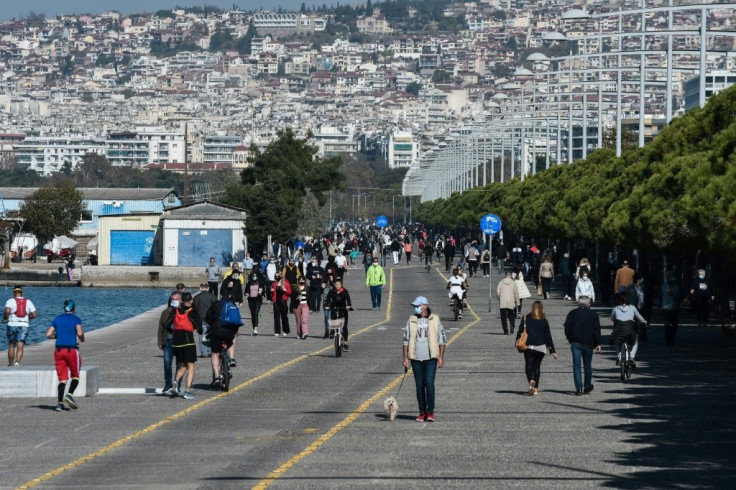
Austria joined a growing trend announcing schools and non-essential shops would close from Tuesday, having imposed a partial lockdown two weeks ago.
"There are still many who say that infections don't happen at school, in shops or services," said Chancellor Sebastien Kurtz.
"But the truth is the authorities can no longer trace 77 percent of new infections, which means they no longer know where contamination is happening."

Greece, battling a saturated national health system, announced it would shut all schools after imposing a nationwide night curfew from Friday.
"Closing elementary schools was the last thing we wanted to do. This is a measure of how serious the situation is," Health Minister Vassilis Kikilias said. Secondary schools had already been shuttered.
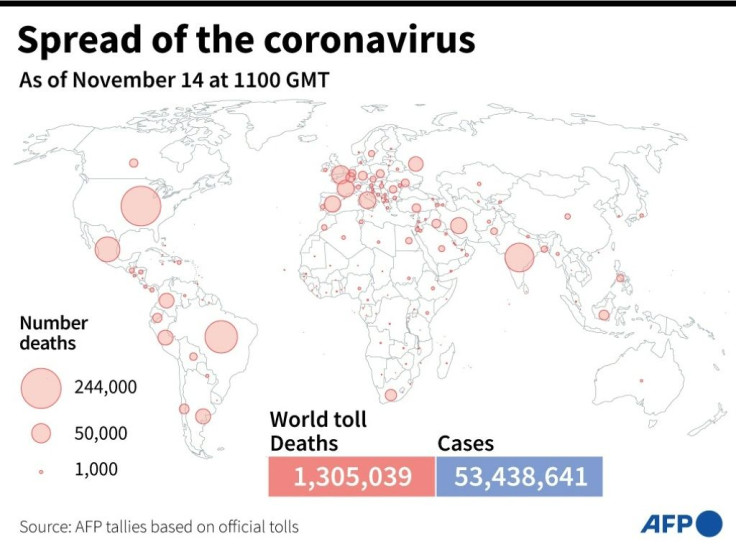
In Italy, the regions of Tuscany and Campania -- of which Florence and Naples are the respective capitals -- plunged into "red zones" of tough restrictions, which now cover 26 million of the 60 million population.
"There is no other way if we want to reduce the numbers of dead," Health Minister Roberto Speranza said, as the country's death toll rose by 544 to 44,683, one of Europe's worst.
New anti-virus curbs also came into force in Ukraine.
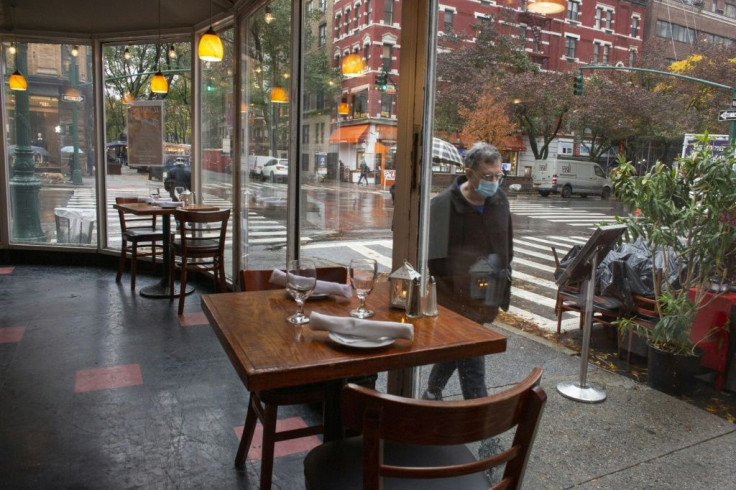
Romania meanwhile suffered tragedy when ten Covid-19 patients were killed and seven more left badly burnt after a fire broke out in an intensive care unit in the northern town of Piatra Neamt.
Beyond Europe, Lebanon entered a new two-week lockdown, with hospitals in the crises-wracked country almost at capacity.
Bars in New York, the epicentre of the US's spring outbreak, were ordered to close at 10 pm from Friday. Schools could move to online only teaching as early as Monday.
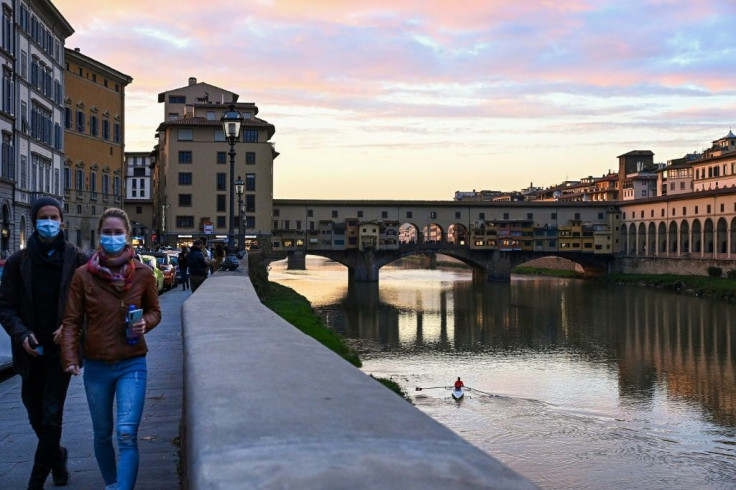
The United States, the country hardest hit by COVID-19, saw 188,858 more cases and 1,596 more deaths Friday, according to Johns Hopkins University.
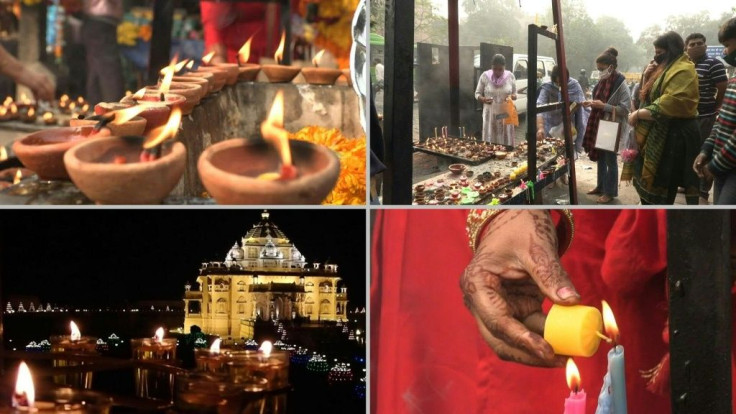
Several Germans cities saw protests against enforced mask-wearing, with police using water cannon to disperse nearly 1,000 people in Frankfurt.
France's Riviera resort of Nice saw 1,500 take to the streets to demand more coherent restrictions to fight the disease.
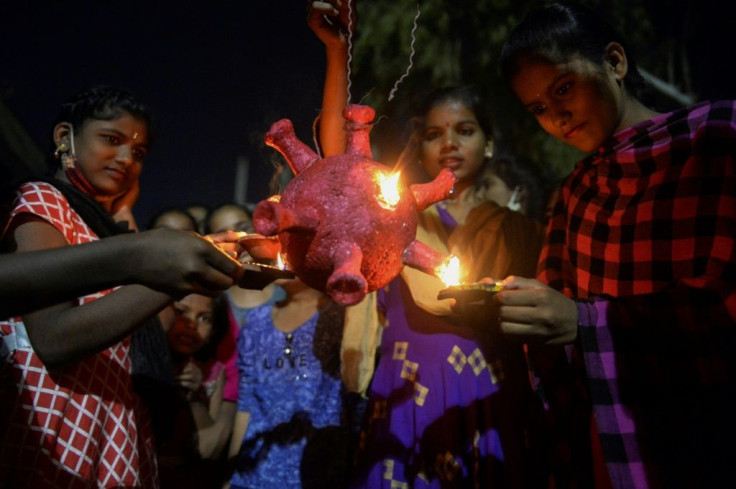
Hundreds of demonstrators also turned out in Portugal, defying a weekend curfew imposed on seven out of every 10 of the population of 10 million.
The curfew bans driving on public roads after 1 pm on Saturdays and Sundays.
"The pandemic is on and we have to be protected, but without killing the economy," said 33-year-old Carla Torres, who works in Lisbon's hospitality industry.
Poland became the latest country to report record figures with 548 coronavirus deaths over 24 hours, just days after the government decided against introducing a nationwide quarantine.
Lifting the gloom, the European Medicines Agency added to growing hopes that an effective vaccine could be available soon.
The EU body said it expected to give a favourable opinion on a vaccine by year end if test results proved positive.
But even if the hurdles of testing and distribution are overcome, another challenge awaits: will people take a vaccine?
"My fear is that not enough French people will get vaccinated," French Prime Minister Jean Castex told Le Monde newspaper.
French restaurant and bar owners announced legal action against government measures which closed them from the end of October.
Castex, who warned governments had to dig in for the long haul, took to Twitter to respond to a father who had posted a child's drawing addressed to Father Christmas.
"Tell him we are working hard so that Father Christmas is able to do his shopping in France in December -- if we respect social distancing we shall get there," Castex insisted
In India, the pandemic and chronic pollution cast a shadow over Diwali celebrations for hundreds of millions on the biggest Hindu holiday of the year on Saturday.
In the smog-shrouded capital New Delhi firecrackers were banned for the Festival of Light and while people still thronged markets, traders said Covid-19 had scared shoppers off spending.
With 8.7 million cases, India has the world's second-highest coronavirus infection count behind the US.
The lights were off at Vineet Garg's gold and jewellery store near Delhi's Connaught Place, despite an "open" sign.
"It is a waste of electricity to put the lights on," he said. "People are not buying in shops... They are too worried to have fun."
© Copyright AFP 2024. All rights reserved.





















